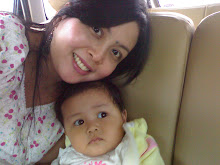THE MANY HIGHLIGHTS
| Beginners Life stage Your newborn baby spends most of his time asleep, but as he progresses through the beginners’ life stage a gradual awakening process will take place. From birth your newborns head is large and heavy in relation to the rest of his body. Whilst on his back his head will rest to one side. His hands are closed, with the thumb in the palm and any movements he does make are with his arms and they are large and jerky.
|
|
How to help your baby learn
| Visual stimulation Babies are initially attracted to contrasting colors such as black and white and bright colors like red. He will be particularly interested in faces, and will find it easier to focus 15-20cm from is face. Try moving your face or colorful toys slowly from one side to the other to encourage your baby to follow you. Once he has conquered side to side how about trying up and down. Listening and talking Your baby finely tunes into your voice around eight weeks and will quickly recognize others not long afterwards. Talk to your baby constantly, this will help him focus on you and help him develop listening skills that are important for his language development. It’s important to remember that you don’t need to limit your self to baby talk; read and sing to him. Head control By three months your baby may be able to hold his head in the middle when he’s lying on his back. If not try placing a padded hood (as those used in car seats) to help support him. Whilst on his back try suspended toys (such as a toy gym) above him to encourage your baby to bring his hand together in front. And eventually to encourage him to try to bat and garb with his hands. Also allow your baby to have free time without a nappy. You can encourage kicking by placing soft toys or crinkly paper under a sheet at the foot of his cot/pram to kick. Once your baby starts to lift his head up when he’s over your shoulder encourage further strengthening of his neck with visual stimulation of a mobile, mirror or window. Hand Play For the first six weeks or so your baby’s grasp is simply a reflex action, but by giving him a variety of things to hold, you are encouraging an awareness of his hands. Select toys which are easy for him to grasp, such as small, soft toys or squeeze toys that squeak or rattle. Baby Talk
Encourage your baby’s vocalizing by repeating his sounds back to him, and then wait for him to speak again – he will be delighted in this turn talking. |

No comments:
Post a Comment